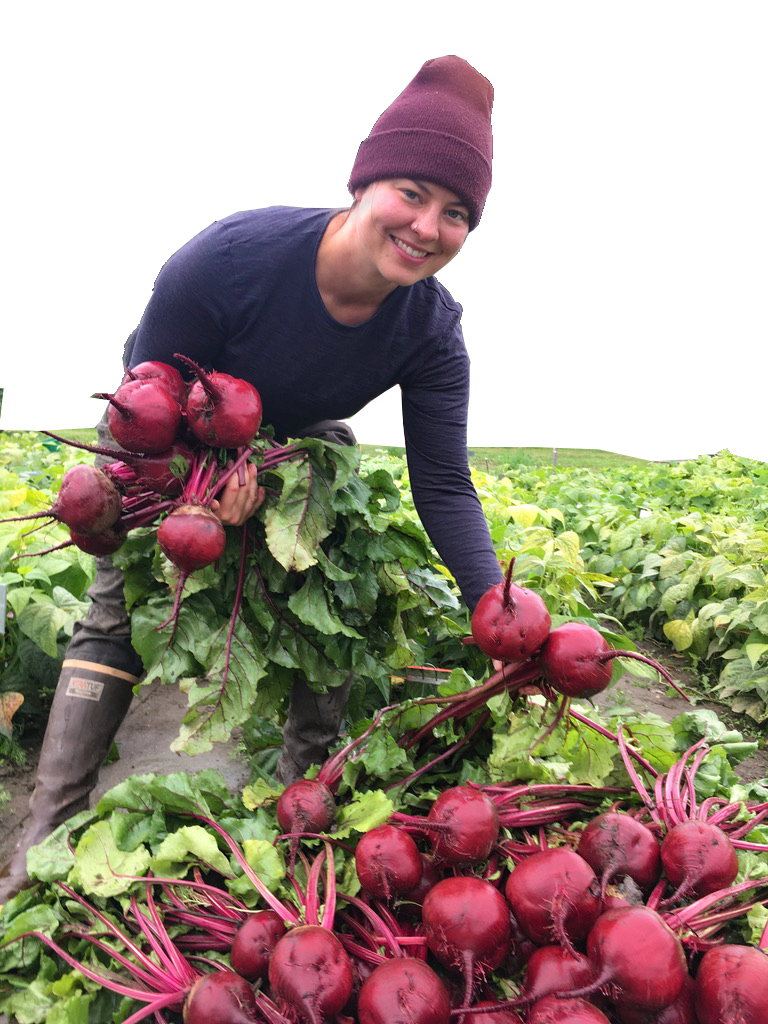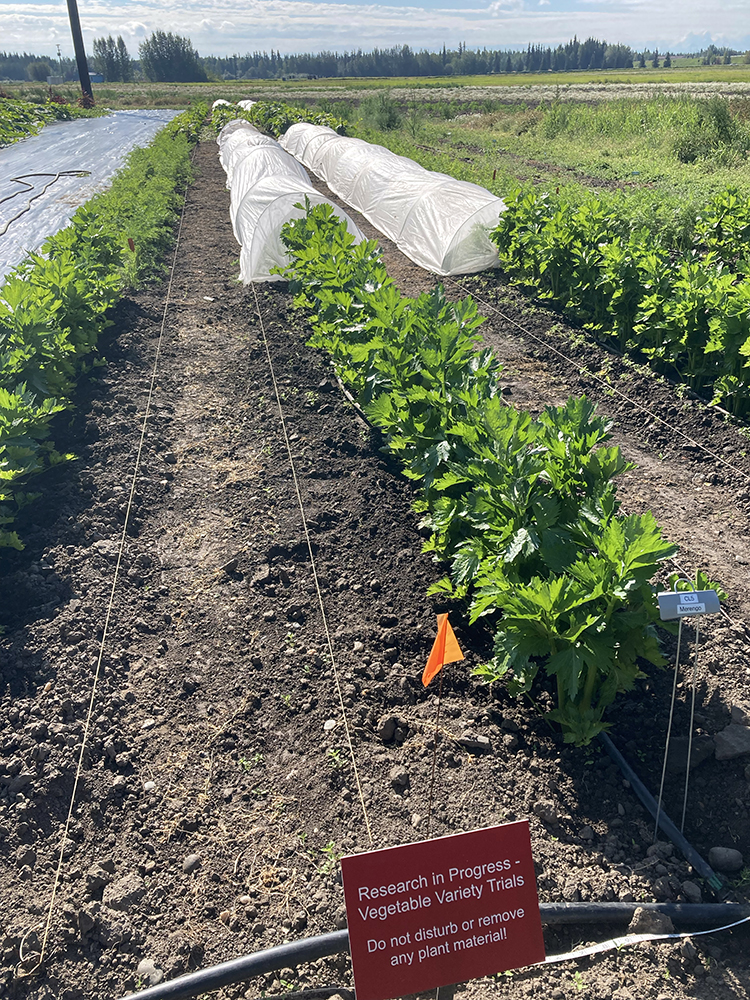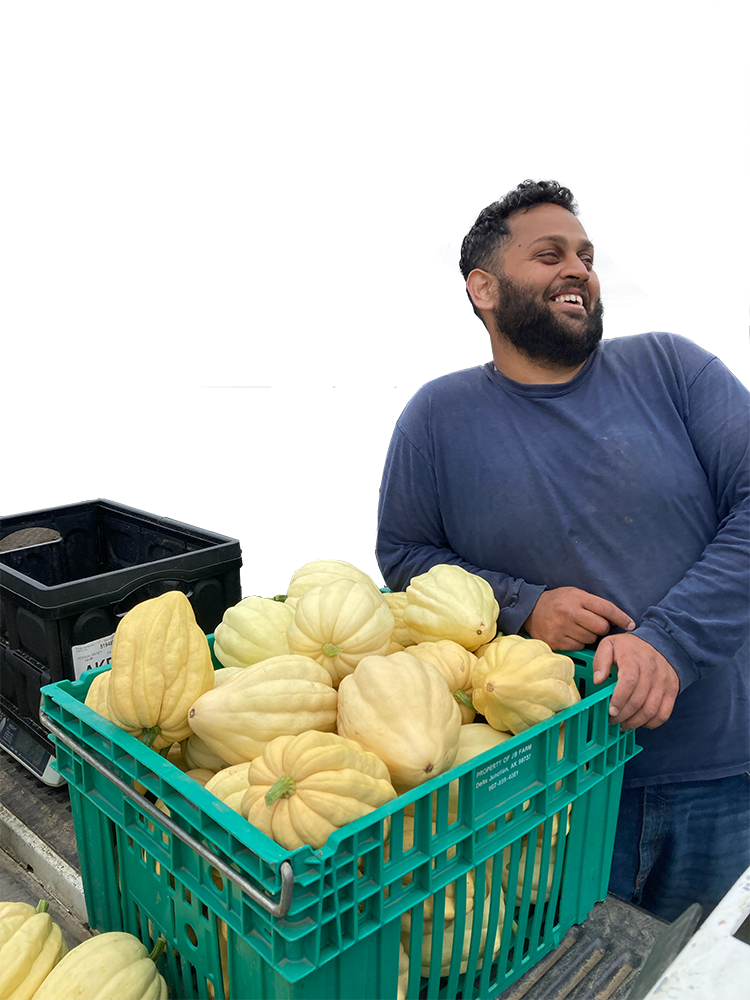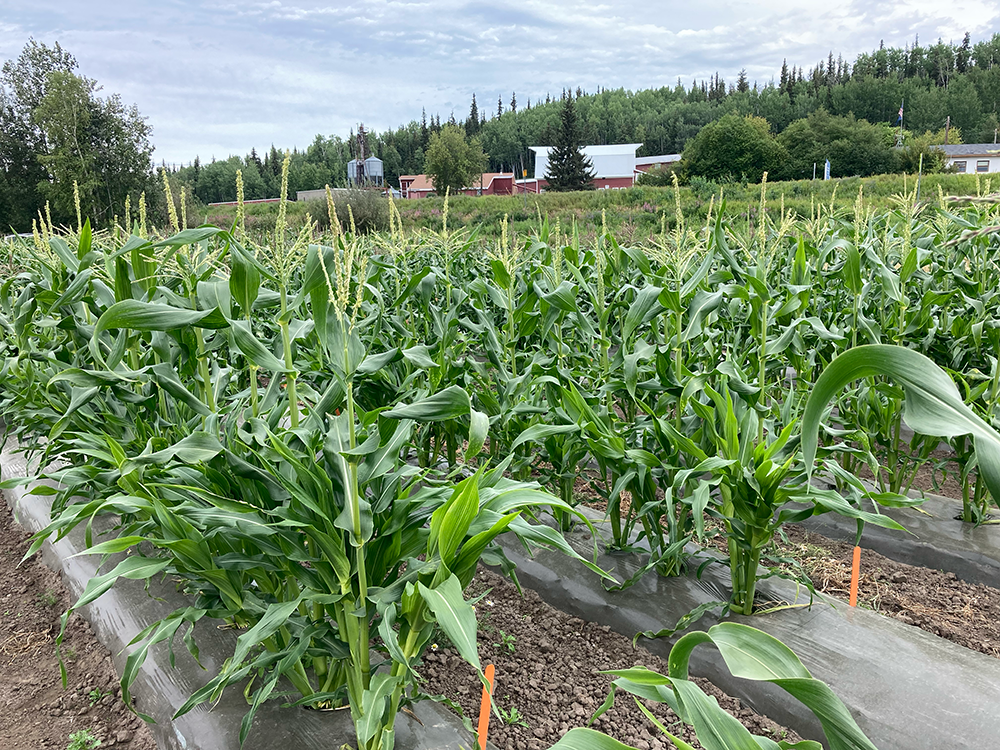
The goal of the variety trials is to determine which vegetable and edible perennial cultivars, or “varieties,” grow best in various regions of Alaska.
Trials consist of new and standard cultivars suitable for small market gardens and home gardens in the Tanana Valley and the Mat-Su. Plot sizes are small, and results do not necessarily reflect the yield and produce quality expected on large farms. Cultivars with positive results should be considered worth further testing at commercial and home gardens throughout Alaska.
Plant cultivar trials for vegetables, flowers, and herbs are conducted every year at the Fairbanks Experiment Farm and the Matanuska Experiment Farm.
The AFES variety trials include the evaluation of “staple crops” (those known to do well in Alaska) and crops formerly considered marginal for Alaska, such as hot peppers, artichokes and sweet corn. Varieties are selected based on those that have been successfully grown previously, have not been evaluated before, or are “new to market.” The Variety Trials Program also evaluates cultivars bred to have qualities that make them potentially good candidates for Alaska’s growing conditions (i.e., cold-tolerant, shorter days-to-maturity, bolt-resistant, etc.).
Our research assists small market farms and home gardeners in making climate-smart decisions about which cultivars to select.
In 2020 Alaska Vegetable Variety Trials outgrew their space in the Georgeson Botanical Garden. They were moved to the agriculture fields at the Fairbanks Experiment Farm, which allowed trials director Glenna Gannon to significantly expand the number of crops and cultivars tested. Since then, over 220 vegetable cultivars have been evaluated. Additionally, 12 varieties of different fruit and nut cultivars have been added to the long-term perennial food plant trials, which include asparagus, haskaps (honeyberries), currants and hazelnuts!
Variety testing is a multi-year process. The first year is usually a screening trial, where the new cultivars are grown among a classic variety, to compare growth performance under similar field conditions. Those cultivars that show promise are grown in replicated plots thereafter for a minimum of three years. Cultivars are evaluated on marketable yield, plant vigor, bolting sensitivity (or susceptibility to bolt), uniformity, pest resistance, disease resistance, fruit quality (in the case of some crops) and taste. All these factors are analyzed to determine each variety’s suitability for the local growing conditions.
Results from variety trials are available on our research database.
- Fairbanks Vegetable Variety Trials 2021
- Palmer Vegetable Variety Trials 2020-2021
- Vegetable Variety Trials 2020
- Vegetable Variety Trials 2019
- Vegetable Variety Trials 2018
- Vegetable Variety Trials 2017
Additional Resources:





